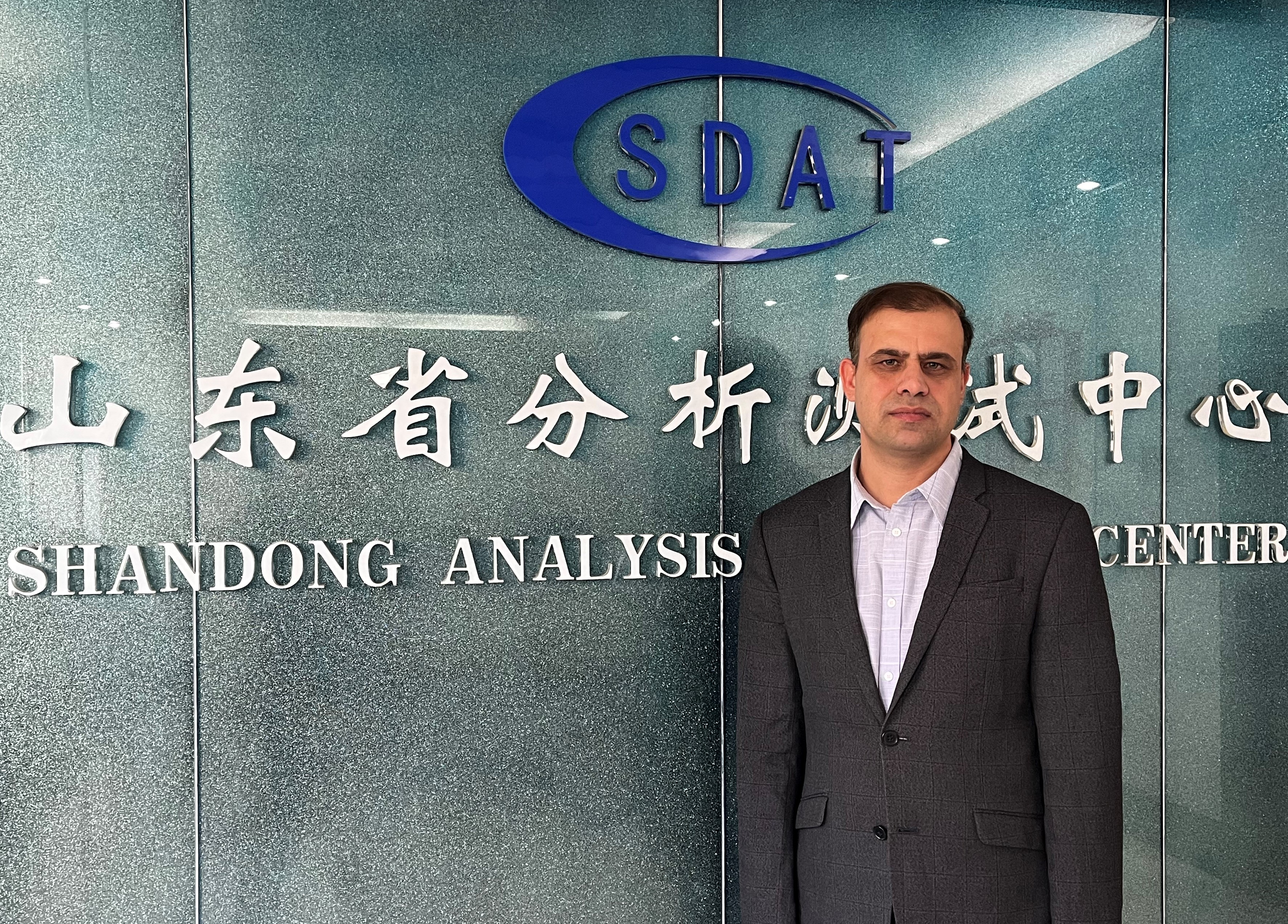Progressive Country of Openness, Inclusiveness

Dr. Mashooq Khan. (COURTESY PHOTO)
By?LONG?Yun?&?BI?Weizi
Dr. Mashooq Khan is a young Pakistani scientist who has made a name for himself in the field of pharmaceutical sciences. He works at the Shandong Analysis and Test Center in China, where he conducts research activities in a wide range of areas, such as liquid crystal, sensors, biosensors, and single-cell analysis.
In March 2017, Khan arrived in China six months after completing his PhD in South Korea. Though he had researched China and its culture before arriving in the country, he realized that China was different from what he had perceived. Khan was really struck by Beijing's crowded streets, great varieties of food, enormous buildings and diverse cultures.
His journey to China was motivated by his desire to further his studies at one of the world's best universities. His interest in research led him to Tsinghua University (THU). THU is known for its world-class facilities, monumental buildings, and excellent faculty. For Khan, it was a dream that came true to be accepted into the university, where he found the environment supportive and friendly. The interactive nature of getting to know his advisor and colleagues has seen many of them become good? friends.
Khan applauded China's openness to embrace international cooperation and its increasing presence in solving global issues.
According to Khan, the world is facing a range of challenges that transcend national borders, and to resolve these issues requires a collective effort from all nations. The concept of building a community with a shared future for mankind, proposed by Chinese President Xi Jinping, is a visionary approach towards global cooperation to tackle the world's pressing challenges.
He was attracted to China's growing reputation as a hub for high-tech expertise and has been impressed by the government's inclusive efforts to attract international experts.
Khan said the Chinese government has introduced a series of policies that make it easier to recruit global talent. These include relaxed restrictions on age, educational background, and work experience, as well as allowing foreign talent to start a business without changing their work permit. The government has also eased visa application requirements for foreigners, making returning to China more efficient and convenient.
In addition, the National Natural Science Foundation of China has introduced a new category of research grants specifically for international scientists, allowing foreign researchers to benefit from funding for their research, said Khan, adding that these measures have created more opportunities for foreign researchers working in China, providing more possibilities to solve problems confronting the world.
He noted that the research environment in China is collaborative, inclusive, supportive, and creative, and his team at the Shandong Analysis and Test Center is highly active in establishing collaborations with high-level researchers at home and abroad, where they can integrate their expertise for significant technological advancements.
Khan appreciates the natural interactions he has developed with his colleagues without discrimination, social separation, or isolation. His research team is open to discussion and values the ideas proposed by team members, which helps them overcome challenges and facilitates innovative research.
???
This article is also contributed by Shandong Analysis and Test Center, affiliated with Qilu University of Technology (Shandong Academy of Sciences).







